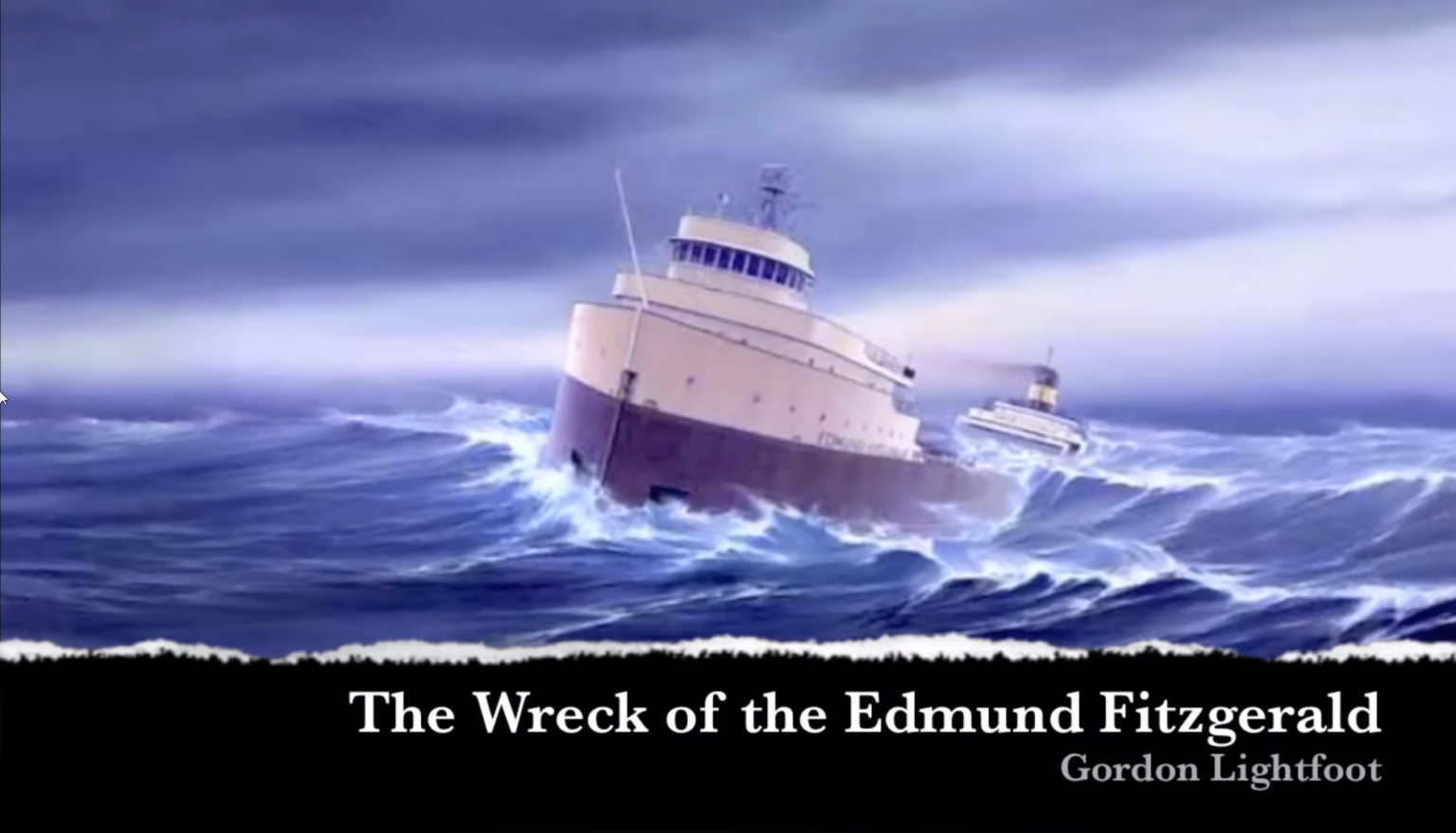The Legend of Gordon Lightfoot the Wreck of the Edmund Fitzgerald”
Gordon Lightfoot the Wreck of the Edmund Fitzgerald: Gordon Lightfoot, the celebrated Canadian singer-songwriter, captured the attention and hearts of audiences worldwide with his haunting ballad, “The Wreck of the Edmund Fitzgerald.”
This iconic song, released in 1976, tells the tragic tale of the sinking of the SS Edmund Fitzgerald, a massive ore carrier that disappeared beneath the icy waters of Lake Superior on November 10, 1975.
With its evocative lyrics and mesmerizing melody, Lightfoot’s masterpiece has become a timeless classic that continues to resonate with listeners to this day.
The Story Behind the Song
“The Wreck of the Edmund Fitzgerald” is a vivid and poignant recounting of the fateful voyage of the Edmund Fitzgerald and the 29 crew members who lost their lives in one of the most infamous maritime disasters in the history of the Great Lakes.
The song pays tribute to the bravery and sacrifice of the sailors who faced the wrath of a powerful storm that claimed their ship without a trace.
Gordon Lightfoot was inspired to write the song after reading a news article about the tragedy.
Struck by the human drama and the mysterious circumstances surrounding the sinking of the Edmund Fitzgerald, Lightfoot penned a lyrical masterpiece that captures the essence of loss, grief, and the relentless power of nature.
The Power of Lightfoot’s Lyrics
Lightfoot’s lyrics in “The Wreck of the Edmund Fitzgerald” are a testament to his storytelling prowess and poetic sensibility. The song opens with the haunting lines:
“The legend lives on from the Chippewa on down
Of the big lake they called ‘Gitche Gumee’
The lake, it is said, never gives up her dead
When the skies of November turn gloomy”
These evocative words set the tone for the rest of the song, drawing listeners into the tragic narrative of the ill-fated ship and its crew.
Lightfoot’s vivid descriptions and poignant reflections on the loss and legacy of the Edmund Fitzgerald create a powerful emotional resonance that lingers long after the song has ended.
Musical Brilliance and Emotional Depth
In addition to its lyrical prowess, “The Wreck of the Edmund Fitzgerald” is distinguished by Lightfoot’s masterful musical composition.
The haunting melody, accompanied by acoustic guitar and mellotron, provides a somber backdrop to the lyrics, enhancing the emotional depth and impact of the song.
Lightfoot’s rich baritone voice adds a sense of gravitas and authenticity to the narrative, conveying the weight of the tragedy and the enduring legacy of the ship and its crew.
The subtle shifts in tempo and dynamics throughout the song mirror the ebb and flow of the stormy seas, creating a sense of tension and drama that keeps listeners captivated until the final notes fade away.
Legacy and Impact
Over four decades since its release, “The Wreck of the Edmund Fitzgerald” remains one of Gordon Lightfoot’s most enduring and beloved songs.
Its timeless appeal lies in its universal themes of loss, resilience, and the indomitable spirit of the human soul in the face of adversity.
The song has also served as a poignant tribute to the memory of the crew members of the Edmund Fitzgerald, ensuring that their sacrifice is never forgotten.
Each time the haunting strains of Lightfoot’s ballad fill the airwaves, listeners are transported back to that fateful night on Lake Superior, where a ship and its crew met their tragic end but left behind a legacy that continues to inspire and resonate with audiences around the world.
In conclusion, Gordon Lightfoot’s “The Wreck of the Edmund Fitzgerald” stands as a testament to the enduring power of storytelling through music.
Through his evocative lyrics, haunting melody, and emotional depth, Lightfoot has crafted a lasting masterpiece that immortalizes the memory of a maritime tragedy and pays homage to the courage and sacrifice of those who perished.
As long as the legend of the Edmund Fitzgerald lives on, so too will the legacy of Gordon Lightfoot and his timeless ballad that continues to captivate and move audiences to this day.














